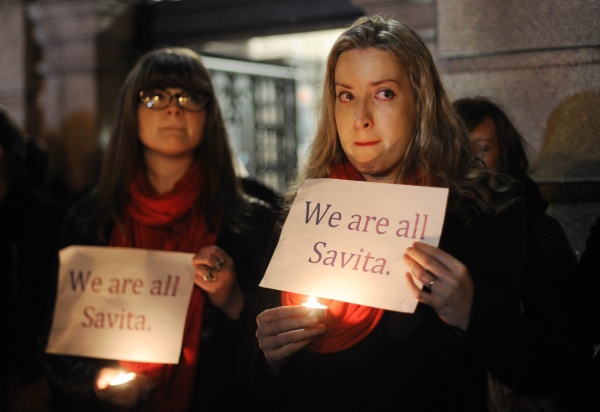THREE Irish women forced to travel to Britain to terminate their pregnancies after being told that their babies would not survive outside the womb are taking their cases to the United Nations.
Amanda Mellet, Ruth Bowie and Siobhain Murphy, members of the Terminations for Medical Reasons (TFMR) group, will outline their cases at a press conference in Dublin on Wednesday.
The women will allege that the fact they were forced to leave Ireland to terminate their pregnancies – following diagnoses of fatal foetal abnormalities – amounted to cruel, inhuman or degrading treatment.
They will also have papers filed with the UN’s Human Rights Committee in Geneva on Wednesday.
The committee will then require the Irish State to respond to the admissibility of the cases and the allegations before it delivers its verdict as to whether the continued ban on abortion in cases of fatal foetal abnormality amounts to a violation of women’s human rights
The process that could last up to four years
 The tragic death last year of Savita Halappanavar triggered discussion over the Protection of Life During Pregnancy Act
The tragic death last year of Savita Halappanavar triggered discussion over the Protection of Life During Pregnancy ActLast July Ireland passed a bill - the Protection of Life During Pregnancy Act – which outlined the circumstances in which an abortion may be performed in Ireland to save a woman’s life.
This did not include cases of fatal foetal abnormality and abortion in this case remains illegal.
The women are being supported by the New York-based Center for Reproductive Rights (CRR).
Johanna Westeson, the CRR’s regional director in Europe, said the centre had a “very strong sense that the case will be declared admissible and a very strong sense also that the committee will decide in the women’s favour.”
She added: “These women have been abandoned by the Irish State, they have been subjected to enormous and long-lasting mental trauma that is directly attributable to the Irish abortion ban. That is a clear violation of their human rights.”
Amanda Mellet, one of the three women, had a termination in Liverpool in December 2011.
She said she hoped the Government would not wait until the UN delivered its verdict to legislate for abortion in cases of fatal foetal abnormality.
“We are hoping this is not going to take another three of four years.”

